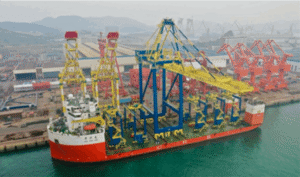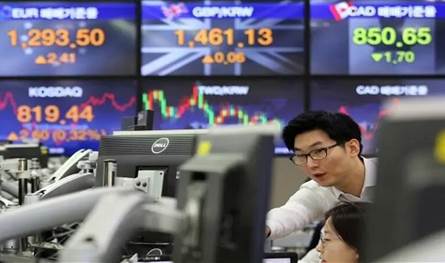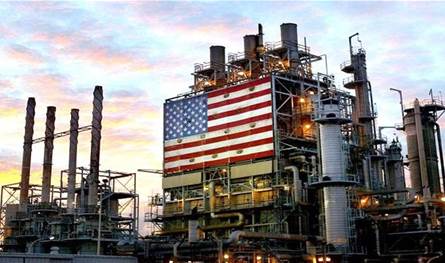
“Libyan Dibit” – Basma Atwi
A few days away from the “memory” of the outbreak of the financial crisis on October 17, 2019, there are two signs that Lebanon is currently witnessing in connection with the crisis: the first is the government of President Nawaf Salam’s endeavor to implement required reforms from the International Monetary Fund in preparation for the signing of an agreement with it, and the second is the high price of Europond bonds for the first time to about 24 cents, after its price fell to 6 cents after Lebanon failed to pay its international bonds due It was $ 31 billion in March 2020. Then the financial crisis worsened, which led to the erasing of the public budgets of banks and the loss of the local currency 99 percent of its value.
The background of these two developments is definitely political. With regard to the crisis, the political -banking system reached the conviction that a settlement must be made to get out of the crisis (in the hope that it is not at the expense of the depositors). Note that its outbreak was the result of the alliance of this system, which practiced the contracts of wrong financial and critical policies, and relied on external transfers, borrowing and the banking sector to finance the state instead of production. She also overlooked the proper treatment of the budget deficit and the current account, and I covered it by attracting deposits, especially in dollars, with high benefits, and to carry out dangerous financial engineers since 2016. DollarWhich increased the dependence on religion and deepened the critical defect.
As for the bonds of Europonds, the investment funds that bought the bonds from banks are intended to move the market and increase prices after it touched positive political developments in Lebanon that could reach an agreement with the IMF, followed by the negotiation of the Lebanese government with bond holders to restore the payment.
In short, the crisis is caused by corruption and chronic mismanagement, political corruption, weak infrastructure, and a large waste of electricity and public sectors, without any serious reforms. Although it exploded starkly on October 17, 2019, that is, nearly six years ago, its indicators began to appear since 2017. This can be concluded through the Bank of Lebanon’s request from banks on August 27, 2020, through circular 154, to return the money they transformed for their depositors abroad starting from the year 2017. Since that date, the signs of transfers began to abroad, they constitute an indication of a disturbing indication of the decline in liquidity. In the foreign currency, which was hidden through financial engineering and attracting deposits with high benefits, until the crisis signs appeared clearly in September 2019 when former Finance Minister Ali Hassan Khalil announced that it is necessary to consider re -scheduling public debt. This statement is the most recent this, the political -banking system, “its jurisprudence”, attempted to explode the crisis on October 17 of the same year. Since that date (September 2019), companies and importers of the banks have increased to meet their demand on the dollar, and many have been forced to resort to the scorpion at prices exceeding the official price (1507.5), in the first explicit indication of the formation of a parallel price and rationalization/rationing of the dollar from banks.
Al -Khoury: The crisis was not an inevitable destiny, but as a result of the accumulation of short -sighted options
The expert in financial and economic affairs and the dean of the Faculty of Administration and Business at the American University of Technology, Dr. Pierre El Khoury, explains to “Libanon Deepite” that “when we return to the years before the explosion of the Lebanese crisis, it is clear that monetary and financial policies have been characterized by the accumulation and accumulation of chronic errors. Since 2019, the limited ability of the Bank of Lebanon has emerged to continue the policy of fixing the exchange rate, in the absence of financial reforms and productive structure capable of feeding The market is in currencies. The almost total dependence on deposits and external transfers created the illusion of stability, while the public finances were immersed in the deficit and the escalating debt.
He added: “The lira was defended through the reserves taking place in the attrition, and was accompanied by expansionist spending policies by governments and parliaments without serious supervision or integrated reform plans.
Al -Fahili: Investment funds use variables as an excuse to raise the price of “Europonds”
After all that was mentioned above in dissecting the causes of the crisis, it is useful to stop at the reasons for the high prices of the Lebanese “Europonds” bonds more than 300 percent in the global markets, that is, about 6 cents in September 2024 to about 24 cents now, at a time when the Lebanese government did not sign an agreement with the IMF, and its negotiations with bond holders did not start to agree to resume payment. Note that when the government decided to fail to pay in March 2020, bond prices fell from 80 to 6 cents.
The economist, Dr. Mohamed Al -Fahili, explains to “Libanon Debayette” that “there are several pillars that contribute to understanding what is going on. The first is that it is necessary to differentiate between bond holders today, and they are the owners of investment funds (speculators) who bought bonds after the state failed to pay Native bond holders means alleviating their loss. ”
He adds: “The main driver of this artificial height is that the investment funds that have acquired these bonds after the collapse are concerned with moving the market, because any improvement at the trading price is reflected positively on its profitability.”
The post An unprecedented leap for Europonds on the anniversary of the crisis … Does it prepare the ground speculators to settle? APPEROD First on 961 tobay Lebanon today.

















